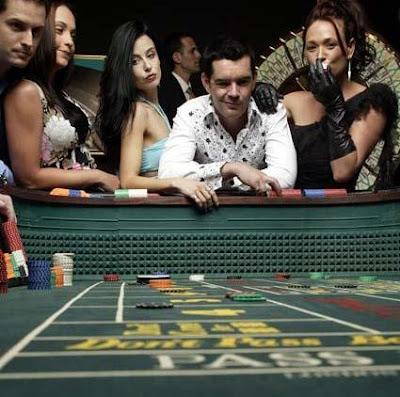 =”1″>
=”1″>The other day I got a phone call from an old friend. We caught up, made small talk, then he asked me: “Hey Mike, are you still gambling for a living?” The conversation didn’t last much longer after that. It has always frustrated me when people I know perceive my trading career as gambling. They are naïve to how the “game” works. If trading is gambling, then I say move over Lou Gehrig, I am the luckiest man on the face of the Earth.
In the 180 days I have traded this year, I have lost money only 25 days. I don’t like to boast or talk to people about my numbers, but I just wanted to share this to give people an idea. I have made money more than 85% of the time. (I think most people would take that success rate in Vegas!) And it’s not like this year has been an aberration. My entire career has been built on the ability to be consistent day-in, day-out. People who like to think I gamble for a living probably haven’t a lot of success in the markets, thus they believe it is impossible to achieve consistent results. I beg to differ, and the proof is in the pudding.
After that phone call, I got started thinking about how to explain the difference between gambling and trading. The difference lies in who makes the rules. In gambling, the rules of the game are defined. In trading, I make my own rules. In gambling, it’s house rules-house wins. In trading, it’s my rules-I win. Let me explain further. I do not pretend to be the smartest guy in the room; I don’t use some earth-shattering trading strategy. But I am crafty. I simply look for in-play stocks—whether it be IPOs, news, hot sectors or important levels—and make quick, low-risk trades. I limit my risk by rarely holding trades against me, and once I reach an appropriate profit level for the day given the market conditions, I stop trading. My expertise lies in knowing which trades to be in, how to execute them, and when to “cash out”.
In trading, I have a choice of whether or not to play each hand that is “dealt” to me. If a stock comes on my radar, but I do not like the way the market is behaving, for example, I do not have to play it. I have the option of surveying any number of “hands”, and deciding which ones I want to play. Imagine that scenario if you were playing blackjack. You get to choose your starting hand while the dealer is stuck with his original one. Needless to say, it would greatly increase your chances of winning in the long run.
Trading IS gambling, however, if you don’t approach it the right way. People who do not approach their trading like a business—with rules and discipline—will be squeezed out of the business real quick. It is easy to go to Vegas, win big on the first night, and come home after the long weekend dead broke. It happens to most people who go to Vegas, and happens to a lot of traders. In Vegas, they just get plain drunk, and in trading they get drunk on greed. If you have that Brett Favre, gunslinger mentality as a trader, your account will blow up in no time. In the long-run, for you to have success you must take a business-like, discipline approach to this job.
I love to gamble on vacation, but trading is my job. Don’t confuse the two.



